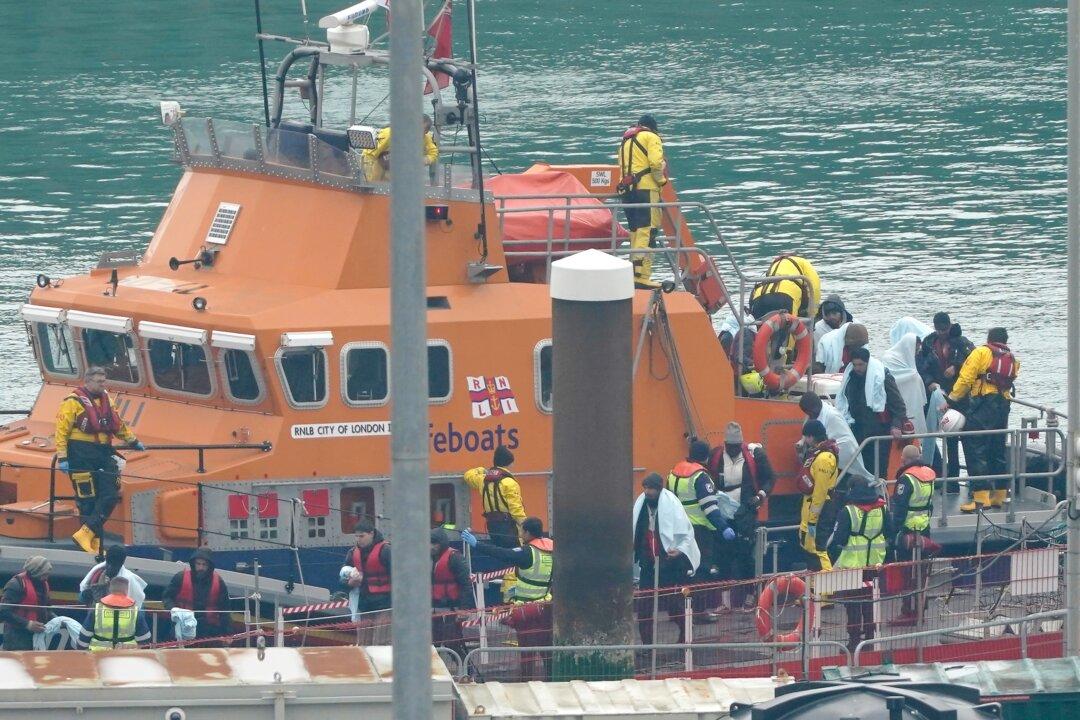The number of people smuggled into the UK via the English Channel in the first quarter has decreased by 17 percent compared to the same quarter last year, official figures show.
The crossings during the 90-day period this year and last year occurred on exactly the same number of days, suggesting the reduction may not be due to weather conditions.





